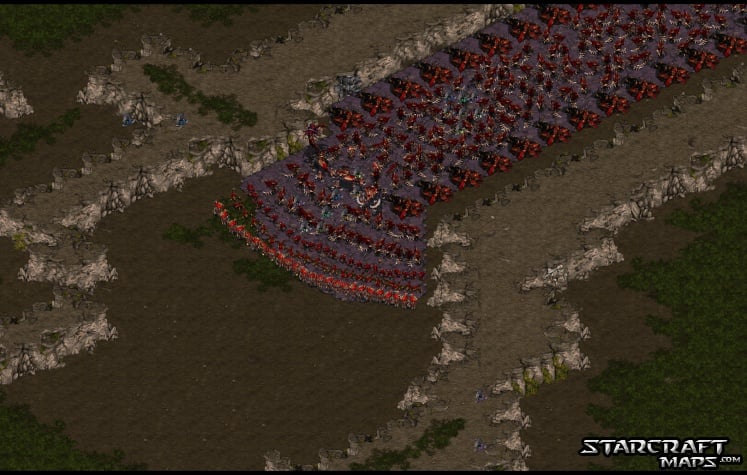

The Soviets' vehicles tend to be more durable and powerful than Allied vehicles, but are usually slower-moving and more expensive. In-game beta screenshot of a Soviet base on the PC version. Players can gain more credits and increase their buying power by building more ore refineries and ore trucks, while excess resources require storage in special 'ore silos' that can be constructed.

Rare gems are worth significantly more credits, but unlike ores, they do not regenerate within the map. Players acquire credits to purchase structures and equipment by mining for ores and minerals (as Tiberium in the regular C&C series has not yet arrived on Earth). Red Alert requires each player to use their side's strengths in order to compensate for their weaknesses, in contrast to games such as Total Annihilation or Warcraft II: Tides of Darkness, in which both sides have units with similar abilities and rely on outnumbering or possessing a better-balanced force than their opponent. The single-player campaign is complemented by live-action cinematic sequences. The objective stays the same but the map layout differs. Like Tiberian Dawn, the game has split routes for most missions. The game features two factions with differing styles of play. Players can queue commands, create unit groups that can be selected by a number key, and control numerous units at a time.

It was initially available for PC ( MS-DOS and Windows 95 versions included in one package) and was subsequently ported to PlayStation. The second game to bear the Command & Conquer title, Red Alert is the prequel to the original Command & Conquer of 1995, and takes place in the alternate early history of Command & Conquer when Allied Forces battle an aggressive Soviet Union for control over the European mainland. Command & Conquer: Red Alert is a real-time strategy video game of the Command & Conquer franchise, produced by Westwood Studios and released by Virgin Interactive Entertainment in 1996.


 0 kommentar(er)
0 kommentar(er)
